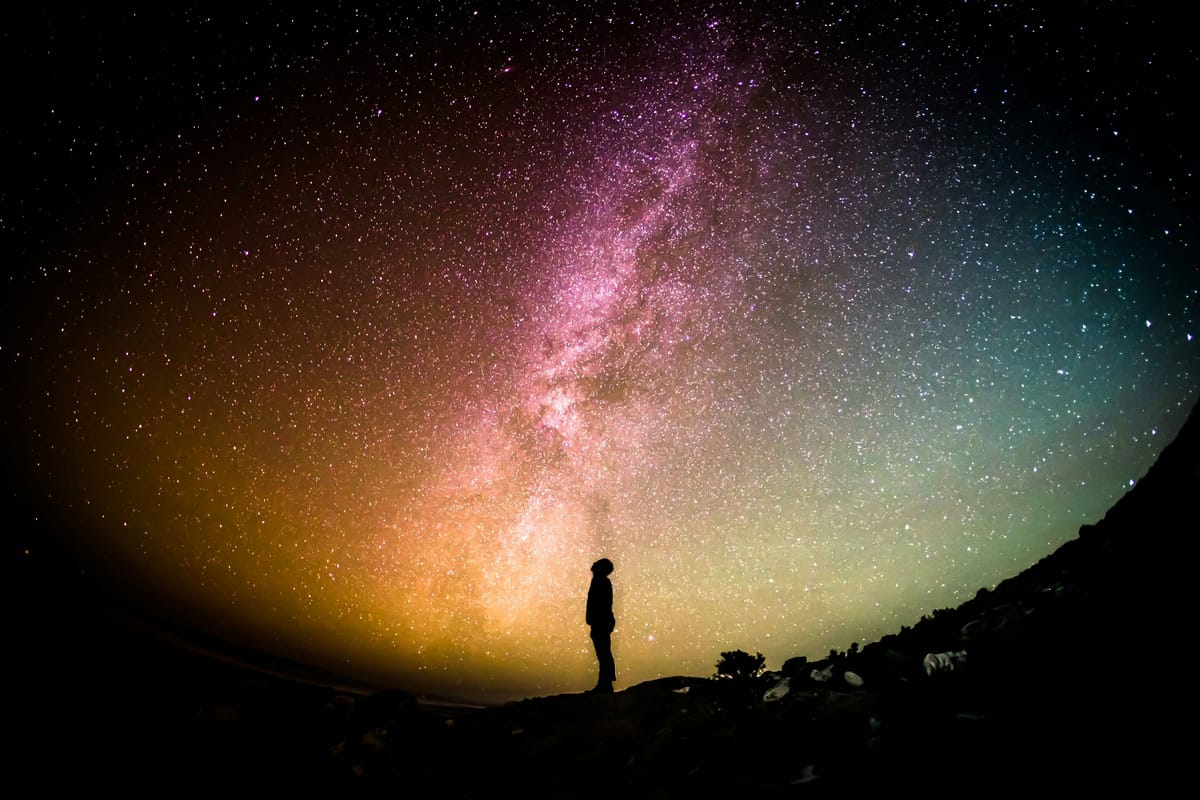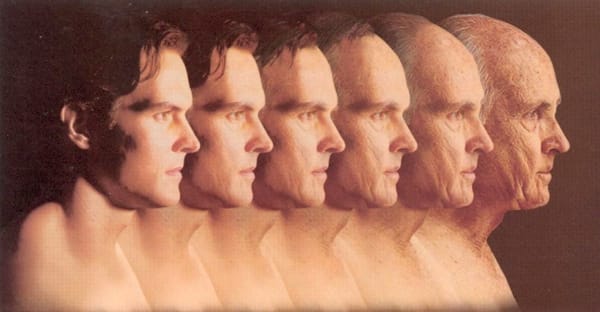Gazing up at the stars: Looking deep into our lives

At dark nights in regions far away from chaotic urban areas, stars cluster and glitter over the vast cosmic arena, emanating rays of comfort and pleasure; yet with our eyes fixed on the night sky, the Milky Way flowing and shining above our heads, we couldn’t help being reminded of our tininess and obscurity in the universe.
Gazing up at the stars, the idea might come to our minds that our fate is predetermined. In ancient Chinese astrology, multiple celestial omens, such as solar/lunar eclipses, the appearance of comets, and the retrograde motion of planets, are regarded as signs predicting the destiny of the empire or the emperor. One prominent example is called “Ying huo shou xin”, during which Mars ceases its regular motion, staying or moving backwards around Antares. This astronomical phenomenon is deemed an ominous sign for the misery and destruction of the empire. In recorded history, an emperor in the Han dynasty demanded the death of the chief chancellor to try to counteract the misfortune. Moreover, in the well-known sci-fi Three-Body, when three stars appear in the sky simultaneously, the world is doomed, and life is to be eradicated. Be it ancient astrology or modern science fiction, it is always implied that fate is irresistible and that our destiny is determined by the rules of the stars. If stars are observed to follow certain tracks of motion and unchanged physical rules, why would human lives be an exception? It becomes natural, then, the idea of Laplacean Determinism, that the future is set and can be thoroughly predicted if the physical states of all matter in the universe are known. It becomes seemingly reasonable, then, to “lie flat” and let destiny dominate our lives.
The largest scale of distance we can get in touch with in our lives is probably distances in cross-continental travel, usually less than 15000 kilometers, but the distance between the Earth and the Sun is ten thousand times that number; the mass of the Earth is also less than 0.0003% of the Sun's. From that data, the Earth itself seems to be utterly negligible within the scale of the solar system. However, the solar system is but a tiny fraction of the Orion Arm in the Milky Way—one ordinary galaxy in the Local Group, which is nested inside the Virgo Supercluster, a fragment of the observable universe (not to mention the possibility of the existence of a multiverse). To us, the human race, the boundaries of the universe are merely an imagination out of reach, due to our inability to colonize even the nearest planet and make full use of the stellar energy generated by our tiny sun. Thus, it does not seem to be irrational at all for some of us to describe our lives as cosmically irrelevant, if what seems to be meaningful to us makes no difference to the “infinite” universe.
The progression of scientific theories, according to philosophers like Thomas Kuhn, is shifts in conceptual schemes, otherwise known as paradigms. No matter which of the paradigms we think and develop our theories in, from geocentrism to heliocentrism, from Newtonian physics to quantum physics and relativity, every single way of understanding how the universe functions is confined to itself—that is, it’s impossible to “think outside the box” and prove the correctness of the conceptual schemes we use, because every proof and justification is limited to the conceptual scheme itself and makes sense only within its context. Therefore, it may seem hopeless for us to truly comprehend the rules by which the universe works, and remain blind to some final “truth”.
If our fate is determined by the stars, if our lives are infinitely humble in comparison with the stars, if it’s even impossible for us to truly understand the stars— then humanity is, indeed, of small account. However, is it really the case?
Modern physics, especially quantum mechanics, which emphasizes random movements and unpredictability at the microscopic level, has provided a brand-new model of the universe distinct from Newtonian physics and largely undermined the theory of determinism; astrology could neither be proven right nor wrong, which makes it a much less credible discipline; science fictions, on the other hand, are no more than imaginations of the world based on existing knowledge, which might very much be proven wrong in the near future.
If what we do doesn’t matter in a million years, nor does it matter to the entire universe, then the fact that it doesn’t matter in a million years or to the entire universe itself doesn’t matter at all. Moreover, if something has to be justified by something that’s also justified by something beyond, the chain of justification becomes infinite, and nothing could possibly be justified. Thus, justifications of meaning end sometimes within life itself, and we do things for their own sake and not for cosmic relevance (Nagel).
Kuhn’s theory of scientific development is self-undermining. If we cannot verify the correctness of any paradigm, then Kuhn’s own theory of paradigm is also reasoned and justified within a paradigm, making it impossible to be corroborated without violating itself.
Even if these refutations may turn out to be not strong and persuasive enough, the overwhelming sense of meaninglessness and hopelessness could indeed be proven unnecessary—we are indeed small, but not necessarily meaningless; and as we gaze up into the sky with even more hopefulness rather than despair, we might find more sense in feeling grateful for the universe other than lost within.
While the stars have been viewed as omens bringing about tragedy and misery, they also serve as guides for navigation and agriculture. Ancient (and even modern) sailors and travellers have used Polaris and other conspicuous stars as navigational guides to lead the travellers’ way among the disorienting nature. Sirius, as the brightest star in the sky, helped farmers time agriculture by marking the time for drought and extreme heat. Therefore, stars not merely impose fate—they nurture life.
Far more than that, the stars not only guide us—they compose us. Every single molecule and atom comprising our body comes from stellar remnants. The stars devote their very lives to nuclear fusion, creating everything necessary for the miracle of life. Supernova explosions are the primary source of heavy metals essential for human industry, without which we would still be stagnating in the Paleolithic age. Our Sun provides us with shelter, warmth, energy, and everything essential for the maintenance of life and the establishment of civilization—it is, irrefutably, our sole and only mom. Life would be entirely postulations and distant dreams if the stars didn’t agree with its birth. We are made up of stars. We ARE the stars.
If we consist of stars and are guided by the stars, then for more than enough reasons, we should hold attitudes of gratitude rather than complaint. They do not deprive us of meaning; on the contrary, they endow us with meaning. The feeling of gratitude involves thankfulness to be alive, and the gratefulness that we’re entitled to a privilege called consciousness, the chance to explore the world and reflect on ourselves. Admittedly, consciousness is a double-edged sword, offering us a higher and broader perspective to reflect and sense ourselves and the universe, while offering us the vain and futile opportunity to search for grander meanings of existence. It is in spite of this, and precisely because of this, that we have to grasp our chances and cherish our privilege. Though there might be hidden forces leading our lives, cosmic vastness outweighing our size, and scientific paradoxes baffling our minds, meaning would not appear or disappear due to our will, and if we cherish, we are happy, and if we complain, we are sad. For all those reasons above, we have to hold dear every single moment of happiness and joy, while having an optimistic attitude, enjoying our human lives.
When we gaze up at the stars, they gaze down at us, too. For sure, as dear creators and educators, they would find satisfaction and delight not when we grumble about meaninglessness, but when we rejoice about our every single day.




